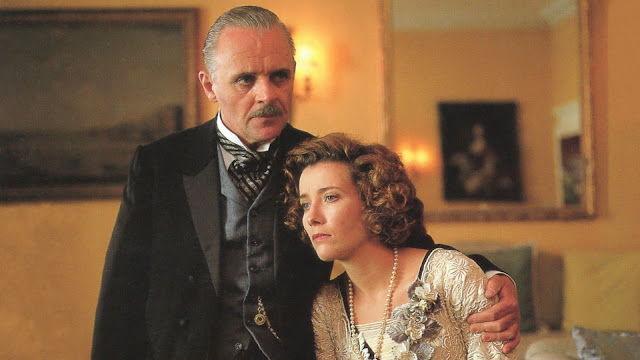March 16, 1992 [Howard’s End]
What else is there, though? They all live there, one time or another, and have to walk where they all walk--and I have to follow them--and it's more than the same old Anglophilia that I jump into feet first, eager to follow the old woman as she moves one more time through the tall grass--mowed at the end of the picture, her ghost as welcome as the rich man’s humbled face, Anthony Hopkins holding his head and clearing it--yes, a little befuddled at the end, no longer a Lion of Commerce (too many losses, too many failed houses); but the sun makes an appearance and the clouds’ shadows seem cheerful as they glide on the field, the alternating light and dark natural and reassuring.
Again, it's more than those reassurances: While the ironies of the novel (at least I think they were ironies) are softened a bit, the new century does its hard work, watches the old class system not merely fade but reinvent itself as a man sitting on the grass and being forgiven by the freer spirits of the twentieth century--to whom Howard’s End is still promised. And while Romantic sunrises never work out, I confess I walk toward them, like poor Leonard Bast, because after all the two families behave as they should, whether we like it or not, with just enough foolishness and fond love to get them and keep them together.



Comments
Post a Comment